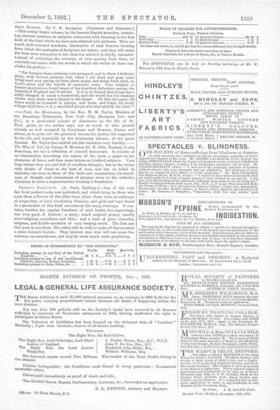Farm Sermons. By C. H. Spurgeon. (Passmore and Alabaster.) —Th i s
rather larger volume, by the famous Baptist preacher, contain- ing nineteen sermons on subjects connected with farming, is the first book of the kind which we have seen adorned with pictures. They are email, well.execated woodcuts, illustrative of that Eastern farming from which the analogies of Scripture are taken ; and they will make the book more attractive to the class for which it is chiefly intended. Instead of criticising the sermons, or even quoting from them, we conclude our notice with the words in which the writer of them con- cludes his preface :-
" For farmers these sermons were prepared, and to them I dedicate 'them, with fervent prayers that when I am dead and gone some living seed may spring tip from these pages, and bring forth fruit, to 'God's glory and the benefit of immortal souls. True religion in former generations found many of ber sturdiest defenders among the farmers of England and Scotland. It is to be feared that things have sadly changed in many a homestead, and the world has the mastery where once there was a church in the house. Oh that the good, old times might be repeated in grange, and farm, and lodge, till every village shall have in it a sanctified people who shall glorify the Lord !"
--Paul, the Missionary, by the Rev. W. M. Taylor, Minister of the Broadway Tabernacle, New York City (Sampson Low and Co.), is a good-sized volume of discourses on the life of St. Paul, given, as the author says, not so much to take ground already so well occupied by Conybeare and Howson, Farrar, and others, as to point out the practical lessons for modern life suggested by the life, and especially by the missionary labours, of the great Apostle. Mr. Taylor has carried out this intention very forcibly.— The Way of Life, by George S. Merriam (G. H. Ellis, Boston), is also American, but not a collection of uttered discourses. It consists of an introduction describing the nature of the book, a paper on the character of Jesus, and then some letters on kindred subjects. Very long letters they are, and full of excellent thought ; but as the writer only thinks of Jesus as the beet of men, and has no belief in miracles, not even in those of His birth and resurrection, his sound- ness of thought and earnestness of purpose seem to the orthodox Christian to raise a superstructure wanting a foundation.






































 Previous page
Previous page